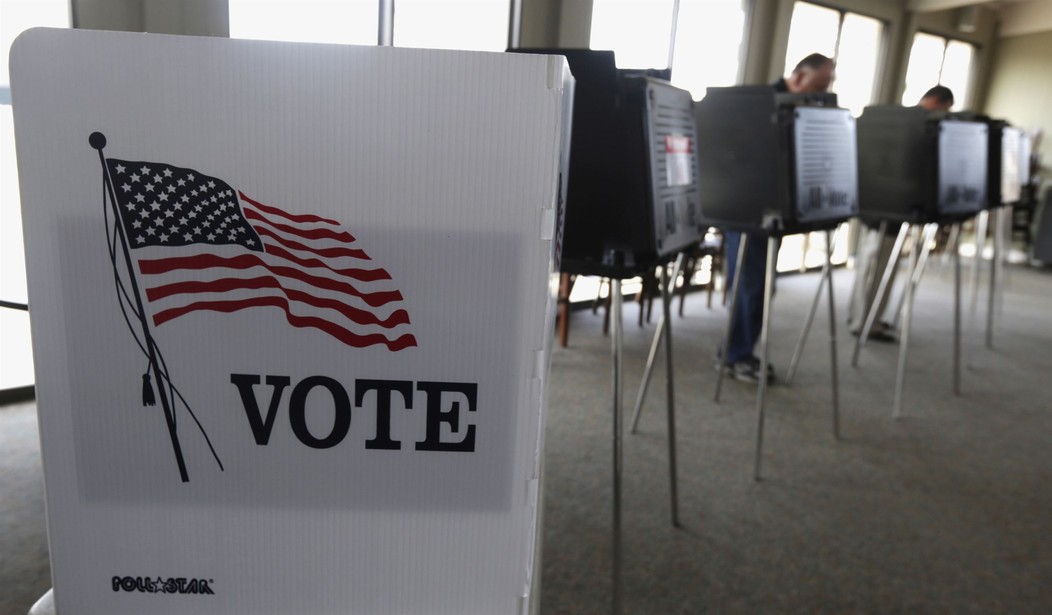“Nobody has found any widespread instances of voter fraud.”
That’s MSNBC host Katy Tur, expressing what passes for conventional wisdom on the Left. They constantly tell us that efforts to pursue voter ID and similar measures are aimed not at election security, but at suppressing the vote.
But those who peddle such a view probably haven’t heard of Lizaida Camis, who was recently charged by federal officials with “promoting a voter bribery scheme.”
Her case took place in New Jersey, which allows mail-in voting. Voters simply have to complete an application and submit it to county officials.
That’s where Camis came in. She’s charged with approaching at least three voters with an offer of money for votes. According to voter-fraud expert Jason Snead:
“Camis went to the voters’ homes after they received their mail-in ballots, in some cases explicitly instructed them to vote for specific candidates, and then collected the ballots. Camis then told the voters they could pick up a $50 check from the Hoboken office of a company that, per the complaint, ‘purportedly provided payroll services’ to local campaigns.”
Camis hasn’t been convicted, but many who have engaged in this type of fraud have been. The Heritage Foundation’s voter-fraud database (www.heritage.org/voterfraud) lists more than 1,140 examples.
That’s not open cases, by the way, or mere allegations. No, that’s more than 1,140 proven instances, with nearly a thousand criminal convictions.
And the list is growing all the time. “As alarming a figure as 1,140 is, it may be the tip of the iceberg,” Snead writes. “The real scope of voter fraud in American elections is unknown, and likely far larger.”
Recommended
Sounds like voter fraud is more than just a little bit “widespread,” doesn’t it?
And remember, many elections are decided by a very thin margin. It doesn’t take much to tilt a particular race in one direction or the other.
Many cases involve the misuse of absentee ballots. According to election-law expert Hans von Spakovsky, who served two years with the Federal Election Commission, these types of ballots are “extremely vulnerable” to fraud.
Take two cases from the Heritage database. The first involves Ben Cooper, the former mayor of Appalachia, Virginia. He and 14 co-conspirators went to prison in 2004 for the largest voter fraud conspiracy in the state’s history.
Cooper and his accomplices traded beer, cigarettes, and pork rinds for votes. They also stole absentee ballots out of the mail.
The second involves another former mayor, Ruth Robinson, who attempted to rig her own re-election in Martin, Kentucky. Their main targets: poor and disabled residents, who they threatened with eviction from public housing if they didn’t sign absentee ballots already filled out by Robinson.
Remind me again: Who’s trying to suppress the vote here?
You can find examples like these in every state. Yet efforts to put in place even the simplest policies to increase election security is met with stiff resistance and cries of “disenfranchisement.” What an ironic charge.
These cases add up – and they make a difference. The Pew Center on the States estimated in 2012 that 24 million voter registrations, one out of every eight, were inaccurate. That’s a serious threat to election integrity.
The threat of election fraud comes from outside of our borders as well. That’s why Americans should welcome President Trump’s new executive order allowing the sanctioning of foreign individuals who attempt to influence our elections. The order is designed to push back against nation-state actors who would target our elections via cyberspace and through other means.
That’s a helpful first step. But there’s more to be done. If we care about protecting the democratic process, we need to ignore those who claim that voter fraud is rare -- and do whatever’s necessary to ensure that our elections are fair and honest.

























Join the conversation as a VIP Member